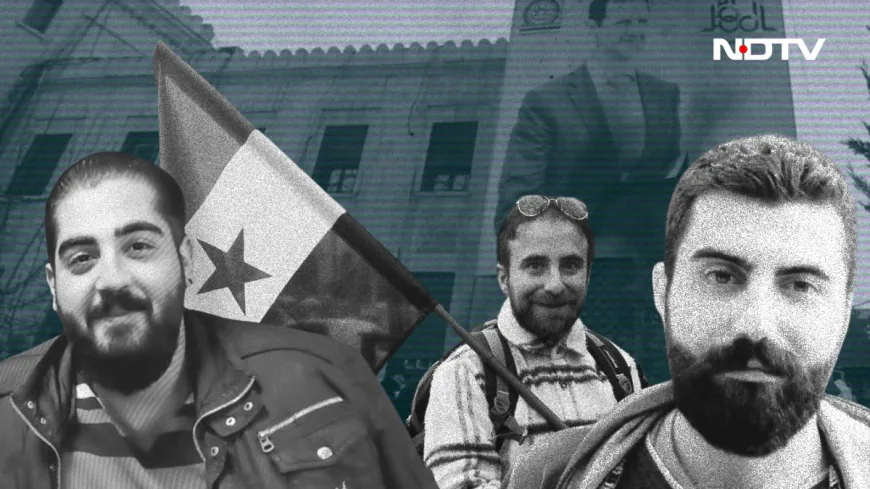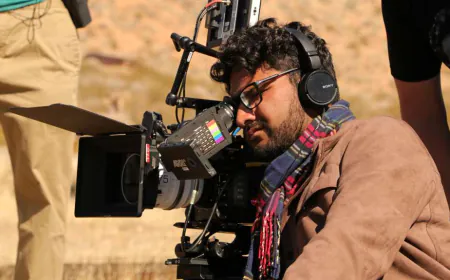Repression, Torture, Slavery - Syrians Recall Horrors Of Assad Rule
Syria witnessed a swift revolution that ended five decades of Assad family rule. Rebels and the Syrian opposition seized control of Damascus in a movement that stunned the world.

Syria witnessed a swift revolution that ended five decades of Assad family rule. Rebels and the Syrian opposition seized control of Damascus in a movement that stunned the world. For the Syrian people, this was more than a political upheaval; it was a life-altering event that evoked a spectrum of emotions from euphoria to trepidation.
For many Syrians, the regime's downfall was both a shock and a long-awaited relief. Hasan Ibrahem, a 24-year-old IT engineer from the port city of Tartus, shared, "There was a suppression of freedoms during the Assad era, but life was somewhat cheap at the same time. However, with the outbreak of the Syrian revolution and the demand for the overthrow of the regime and the departure of Assad, violent confrontations broke out between his supporters and loyalists for 14 years, leading to the death of a million Syrians and the forcible displacement of 12 million."
READ | NDTV Exclusive: Glimpse Of An Assad-Free Syria, What The Future Looks Like
Others, like Mohammad Hasan, a 25-year-old Syrian fashion designer in New Delhi, described mixed emotions. "I felt happiness, I felt like a dream came true, but I was confused and stressed about the unknown future of the country. I was also sad for the amount of blood that was shed during the revolution and war years."
The New Rulers
Syria's new administration has escalated its campaign to track down and arrest members of the ousted Assad regime. While the transitional government promises justice, critics fear its actions may cross into the realm of retribution. The new authorities, led by the group Hayat Tahrir al-Sham (HTS), have made it clear that rooting out loyalists of the old regime is a priority.
The fall of the Assad regime has brought painful memories to the surface for many Syrians. Ahmad Al-Sharef, a researcher in computer languages based in the Romanian capital Bucharest, painted a grim picture of life under the regime. "Growing up there was a nightmare, especially after 2011. All the time scared, armed personnel everywhere, and corruption rampant. It was like living in a big prison."
READ | How A Syrian Teen Triggered Al-Assad's Fall With Graffiti 13 Years Ago
Abu Khaled, a 27-year-old computer science engineer from Jableh, reflected the collective disbelief. "We were in shock. We did not expect that the day would come when this regime would fall because of its brutal oppressive methods. My reaction and that of the Syrian people when we learned of Assad's escape and that the revolution had succeeded was that we took to the streets and chanted at the top of our voices, 'Long live free Syria.'"
"We were subjected to all kinds of repression. The regime treated us like slaves. Speaking out, even in general terms, could result in detention or worse. Secret detention centres, forced disappearances, and torture camps were part of our reality. If you posted a video on social media criticising the government, security forces would storm your house and drag you away," Abu Khaled added.
Aftermath Of Regime Change
In the immediate aftermath of Assad's ouster, scenes of jubilation swept through Syria. Regime prisons opened their gates, reuniting families with loved ones long presumed dead. The abandoned mansions of Assad's inner circle reveal garish wealth - luxury cars, designer wardrobes, and opulent furniture, in stark contrast to the suffering endured by ordinary Syrians.
Yet, this fleeting euphoria cannot obscure the daunting task ahead. Syria's modern history has been marred by coups, military revolts, and authoritarianism. Since its independence in 1946, the country has never known a stable democracy.
READ | Fall Of Assads: How An Alawite Family Ruled Over A Sunni Nation For Decades
Corruption and economic inequality defined the Assad era. Mohammad Hasan recalled, "The people suffered from low monthly salaries and extreme poverty. Even engineers and doctors had to take up multiple jobs to survive. Salaries didn't increase in proportion to rising prices. Important figures did nothing while their children were born with silver spoons in their mouths."
The economic conditions under Assad's rule were dire, and the revolution only worsened the situation temporarily. Hasan Ibrahem noted, "Prices have now begun to decline noticeably. The value of the dollar has fallen against the Turkish lira, and there's an American pledge to lift sanctions imposed during the Assad era. While it's too early to say, there is hope."
"Economic hardship existed even before 2011. Bribery was rampant. Military conscription is now over, and the removal of draconian taxes will encourage people to work. Opening up the economy will flourish it," said Ahmad Al-Sharef.
Abu Khaled described the intentional economic stranglehold imposed by the regime. "Salaries were abysmally low, often equivalent to just $20. Basic commodities were sold at inflated prices on the black market, which was controlled by regime cronies. Even gas and bread were rationed through a system designed to subjugate the population."
Ahmad Al-Sharef believes the nation could evolve into a normal, peaceful country. "The new government isn't fully established yet, and much depends on how it handles regional administration. But I think the future will be similar to any normal country where people can live, work, and travel peacefully."
The Secularism Debate
The prospect of a secular Syria remains contentious. Ahmad Al-Sharef is sceptical. "Secularism wasn't truly present even during Assad's regime. The constitution referenced Islamic verses. With HTS leading the new government, secularism seems unlikely."
Others, like Mohammad Hasan, are more optimistic. "We are secular by nature. Achieving an inclusive Syria is possible, but it requires addressing deep-seated grievances and ensuring equal representation for minorities like Kurds, Christians, Druze, Armenians, and Alawites."
READ | Mass Hangings, Torture That Destroyed Hope: Syria's 'Human Slaughterhouse'
Still, fears of sectarian persecution remain palpable among Syria's minority communities. HTS leader Ahmed al-Shara, better known by his nom de guerre Abu Mohammad al-Jolani, has attempted to reassure these groups, insisting that the new government will protect minorities. Yet, incidents such as the burning of an Alawite shrine and a Christmas tree have stoked tensions, leading to protests in Latakia and Damascus recently.
Building A New Syria
The road to recovery will require rebuilding key sectors. Hasan Ibrahem highlighted agriculture and irrigation as critical areas needing immediate attention. "Reviving the farming sector is essential. Access to commodities and creating a civil state with a policy of zero problems with neighboring countries will stabilize the nation."
Ahmad Al-Sharef stressed the importance of infrastructure. "Services like electricity, water, and gas must be prioritized. Security and civil policing should replace rebel-led systems. Restoring foreign relations and border control is also crucial."
Tourism is another promising avenue, according to Mohammad Hasan. "Syria is one of the oldest countries in the world and contains the two oldest cities. Reviving the tourism sector will help rebuild the economy and bring in much-needed foreign currency."
(With inputs from Aditya Kiran Nag)
What's Your Reaction?





















































